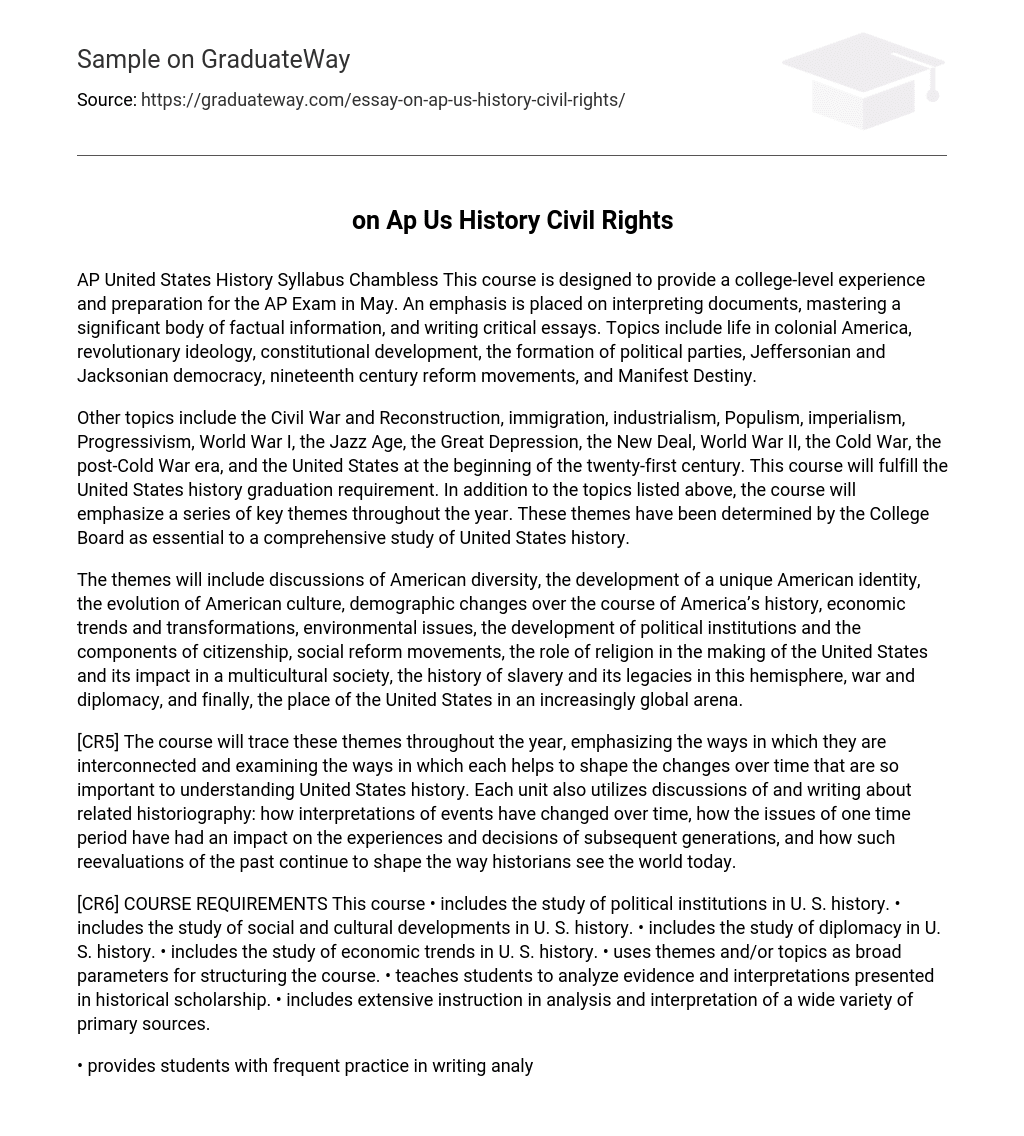This course is designed to provide a college-level experience and preparation for the AP Exam in May. An emphasis is placed on interpreting documents, mastering a significant body of factual information, and writing critical essays. Topics include life in colonial America, revolutionary ideology, constitutional development, the formation of political parties, Jeffersonian and Jacksonian democracy, nineteenth century reform movements, and Manifest Destiny.
Other topics include the Civil War and Reconstruction, immigration, industrialism, Populism, imperialism, Progressivism, World War I, the Jazz Age, the Great Depression, the New Deal, World War II, the Cold War, the post-Cold War era, and the United States at the beginning of the twenty-first century. This course will fulfill the United States history graduation requirement. In addition to the topics listed above, the course will emphasize a series of key themes throughout the year. These themes have been determined by the College Board as essential to a comprehensive study of United States history.
The themes will include discussions of American diversity, the development of a unique American identity, the evolution of American culture, demographic changes over the course of America’s history, economic trends and transformations, environmental issues, the development of political institutions and the components of citizenship, social reform movements, the role of religion in the making of the United States and its impact in a multicultural society, the history of slavery and its legacies in this hemisphere, war and diplomacy, and finally, the place of the United States in an increasingly global arena.
The course will trace these themes throughout the year, emphasizing the ways in which they are interconnected and examining the ways in which each helps to shape the changes over time that are so important to understanding United States history. Each unit also utilizes discussions of and writing about related historiography: how interpretations of events have changed over time, how the issues of one time period have had an impact on the experiences and decisions of subsequent generations, and how such reevaluations of the past continue to shape the way historians see the world today.





